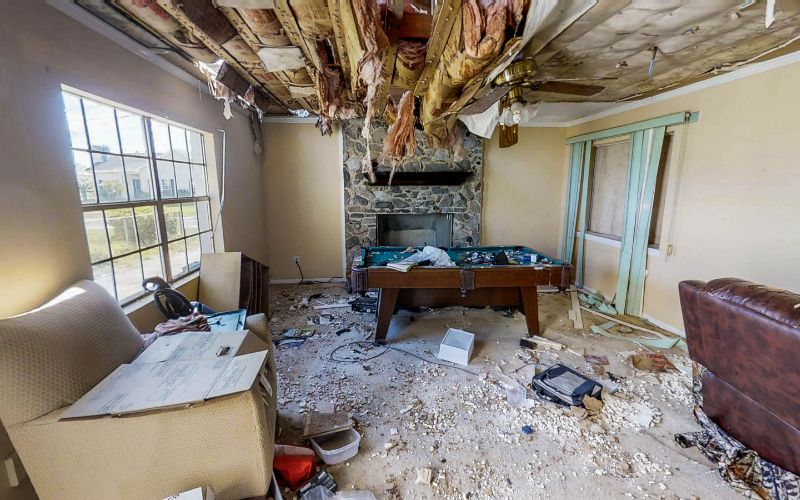Last Updated on March 18, 2024 by Kelvin Nielsen
Is your landlord planning to renovate your rental unit and are wondering what your rights are? If so, worry no more! In this blog, we’ll walk you through everything you need to know regarding renters’ rights during renovations in California.
You see, once you become a tenant in California, you automatically acquire a smorgasbord of rights under CA Civil Code 1940-1954.06. And among these is your right to the ‘implied warranty of quiet enjoyment’.
This means that you have a right to live in peace and quiet in your California home. The landlord or their agents must not, therefore, engage in activities that may try to deny you that fundamental right.
If you’re wondering what your rights are during renovations in California, you are at the right place. The following are answers to commonly asked questions on the topic.
Can a landlord do renovations while occupied in California?
Yes! Unfortunately for tenants in California, a landlord has the right to renovate a rental property while it’s occupied. That said, your landlord must strictly follow the landlord renovation laws in California.
Basically, the landlord renovation laws in California are meant to protect tenants from certain illegal actions by the landlord. It’d be illegal for your landlord to evict you from the property, for instance.
Related Post: Free Legal Advice for Tenants in California: Know Your Rights
What are tenants’ rights during renovations in California?
So, now that your landlord has a right to renovate your California home, what rights does California law grant you as a tenant?
Firstly, your landlord cannot evict you from the property just because they want to renovate the home. The only exception is if the renovations are meant to make the property habitable.
Examples of renovations that may be necessary to make a property habitable in California include the following.
- Repairing or replacing a broken or damaged fixture, appliance, or flooring.
- Fixing exposed wiring to address a safety hazard.
- Fixing a mold issue to address a potential health concern.
- Getting rid of pests, such as termites from the property.
- Installing new light fixtures and hardware.
- Making necessary repairs to windows and/or doors.
- Replacing the carpeting or the flooring.
In other cases, your landlord may also need to make renovations to comply with the local health, safety, and building codes. For instance, the landlord may need to bring the property up to code when it comes to accessibility, safety, and even energy efficiency.
Secondly, you have a right to proper notification. In California, a landlord must serve a tenant with a 60 days’ notice of any planned renovations. Additionally, the notice must be in writing; the renovations must take place for more than 7 days; and the notice must state the start and end dates, and the estimated time the tenant will be displaced.
Thirdly, if the renovations displace you for more than 30 days, the landlord must find you temporary housing elsewhere. This will be at absolutely no cost to you! The alternative housing must be comparable to the current unit in terms of location, amenities, and size.
And last but not least, you have a right to be paid relocation expenses if the renovations have the potential to make the unit uninhabitable.
When does a landlord have to pay for a hotel room for a tenant in California?
Landlord renovation laws in California also require landlords to pay for a hotel room for their tenants when their unit becomes uninhabitable in certain situations.
The following are some specific examples where your landlord must get you a hotel room in California.
- Your rental property is destroyed by a natural disaster, such as a fire or flood.
- The property requires a substantial repair, such as a roof replacement.
- The property becomes severely infested with pests, such as termites. You can read more on that here.
- The property becomes declared uninhabitable by the local health department.
Please note that your landlord has no responsibility to pay for your hotel room if you’re liable for the uninhabitable conditions. An example would be when you negligently or intentionally start a fire on the property.
Your California landlord may also not need to pay for your hotel expenses if you have the option of staying with a friend or family.
When it comes to specific hotel expenses, your landlord is only responsible for paying for the cost of a standard hotel room. They are not responsible for expenses such as transportation and food.
Does tenant have to pay full rent during construction in California?
No! As a tenant, you don’t have to pay full rent during construction in California if the construction severely impacts the unit’s habitability. The following are examples of construction activities that can cause material interference.
- Construction activities that disrupt your access to clean, running water or supply of electricity.
- Construction that causes excessive dust or noise.
- Construction that blocks the unit’s accessibility.
What’s more, you may also be able to exercise some legal rights if the construction materially interferes with your fundamental right to quiet enjoyment. They include the following.
- The right to withhold rent payments until the construction stops interfering with your right to quiet enjoyment.
- The right to repair the issue yourself, such as fixing a disrupted electricity supply due to construction activities, and then deducting the costs from future rent payments.
- Suing the landlord for damages to your personal property as a result of the constructive activities.
- Breaking the lease and moving out without penalty.
Please note, however, that you must notify the landlord of the uninhabitability before exercising any of these legal rights.
What rights do tenants have in California?
State law grants tenants numerous rights after they have established a lease with their landlord. Here is a comprehensive guide to get you started.
Also, here is another guide on things a landlord cannot do in California.
Conclusion
Tenants enjoy certain rights during renovations in California. Including, the right from illegal eviction, right to proper notification, and right to be paid reasonable relocation expenses.
Disclosure: The content herein isn’t a substitute for advice from a professional attorney. It’s only meant to serve educational purposes. If you have a specific question, kindly seek expert attorney services.
Sources: https://leginfo.legislature.ca.gov/, Civ. Code § 1942, https://law.justia.com/codes/california/2021/code-civ/division-3/part-4/title-5/chapter-2/section-1946-2/,

Hi, I’m Kelvin Nielsen, an experienced landlord and accomplished real estate lawyer. My focus is on answering your questions about renting in the hopes of making your life as a renter or a landlord a bit easier.







